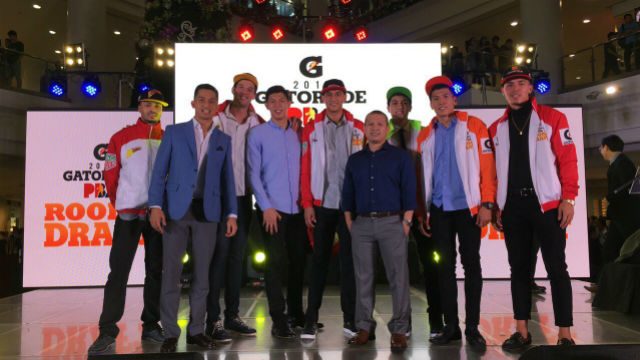SUMMARY
This is AI generated summarization, which may have errors. For context, always refer to the full article.

MANILA, Philippines – The Philippine Basketball Association (PBA) currently limits its 12 teams to having a maximum of 5 Filipino-foreigner players on a roster, including the second and third conferences of the season where imports are recruited.
Matthew Manotoc, a basketball agent in the Philippines who co-runs Espiritu Manotoc Basketball Management (EMBM) and regularly deals with PBA teams for his players, said it’s “arguably discriminatory” that such a limit exists.
“It’s based on birthplace, so you can be full Filipino yet born in America, and even if you moved to the Philippines when you were two years old, you’re still a Fil-Am,” Manotoc told Rappler, explaining one of the rules of the 41-year-old basketball league.
Phoenix big man Norbert Torres (Toronto, Canada) and Blackwater back-up Kyle Pascual (Anaheim, California) are examples of pure-blooded Filipinos who are considered as Filipino-foreigners on PBA rosters due to their birth places. Both second-year players are under EMBM, which also represents other Filipino-foreigners such as Chris Lutz, James Forrester, Yousef Taha, Matthew Wright, Joseph Eriobu, and Arnold Van Opstal.
“Many of these Filipino-foreigners have parents who are OFWs (overseas Filipino workers), thus they’re born abroad. It’s not their fault that their parents work abroad so they were born there,” Manotoc said.
Manotoc, the son of 6-time PBA champion and former Grand Slam head coach Tommy Manotoc, also pointed out that pure-blooded Filipinos born abroad are still considered as Filipino-foreigners in the PBA even if they’ve been playing in the basketball league for a number of years.
“Then you have Fil-Ams who have been playing in the PBA for over 10 years who still count against the rule. Does it really make you less Filipino if you weren’t born in the Philippines?” he argued.
Manotoc, furthermore, highlighted how some players in the PBA are considered locals despite having foreign blood because they were born and raised in the Philippines, showing one of the inconsistencies in the PBA’s rule book.
For example, PBA All-Star Marc Pingris of the Star Hotshots was born to a French father and Filipino mother, but grew up in Pangasinan, Philippines and is counted as a local on his team’s line-up.
Meanwhile, a player like Jimmy Alapag, who was born in San Bernardino, California but is pure-blooded Filipino, was considered one of the Meralco Bolts’ 5 Filipino-foreigner players during the 2015-2016 season. Alapag joined the league in 2003 and officially retired “for good” on Thursday, November 3.
Manotoc, who also said that “it’s bad enough” PBA players currently don’t have a players’ union for representation with PBA-related concerns, called for the number of Filipino-foreigners per team to be increased.
“At least make it 6 Filipino-foreigners per team. Not just because it hurts the future Filipino-foreigners, but because it hurts the teams and league by not having the best players. We shouldn’t discriminate against ourselves. The fans deserve better. We’re all Filipinos.”
Supreme Court ruling consequences
Manotoc, who was also elected board member of the 2nd District of Ilocos Norte, cited a Supreme Court ruling that will likely be costly for Filipino-foreigners aiming for a career in the PBA.
“The Supreme Court made a ruling last year that your mother couldn’t have been Americanized at the time of your birth if you want recognition [as a Filipino], which is the required PBA document,” he said.
Manotoc further explained that the new ruling states if a player’s mother was already Americanized, she would have to reacquire her Filipino citizenship before her son turns 18 years old for recognition.
“That’s going to hurt a lot of the Fil-Ams,” explained Manotoc, who believes the rule will apply to incoming PBA draftees but won’t affect those already in the league. Had such a guideline been put in place before, many Filipino-Americans in the league today wouldn’t be able to play.
“The PBA will lose maybe half the possible Fil-Ams to this rule… it’s quite alarming.” – Rappler.com
Add a comment
How does this make you feel?
There are no comments yet. Add your comment to start the conversation.